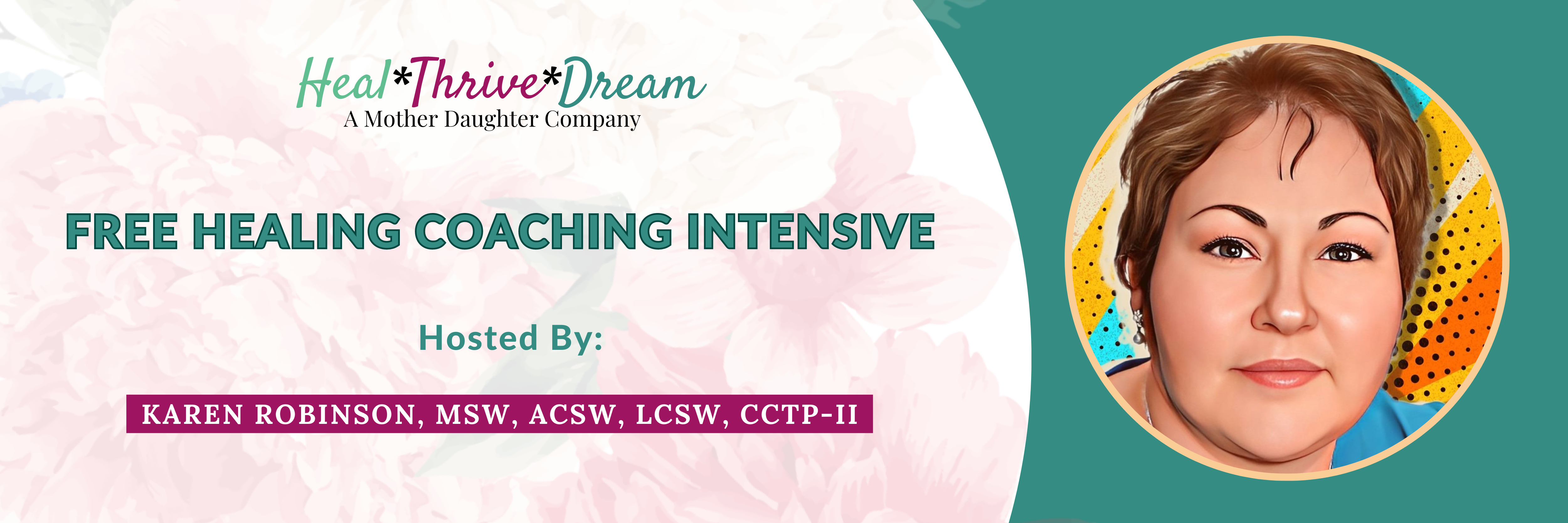When You Don’t Get the Apology You Deserve
There are times when the apology you yearn for never arrives, leaving you with a lingering sense of hurt and frustration. The question then arises: how long are you willing to wait for an apology? And how do you navigate the complex emotions that come with not receiving the apology you believe you deserve? I’m hosting a complimentary intensive coaching session on this very topic and you are invited: https://healthrivedream.com/apology
The Weight of an Unspoken Apology
An unspoken apology carries an emotional weight that can feel almost palpable. It's like an unfinished chapter in a book, leaving the narrative suspended in uncertainty. When someone has hurt or abused you and fails to acknowledge it, it can evoke a range of emotions, from disappointment and anger to sadness and betrayal. You might find yourself grappling with a mix of feelings – the pain of the original trauma and the additional hurt caused by the absence of an apology or justice.
The Dismissal of Your Value
An apology is not just a string of words; it's a gesture that communicates respect, accountability, and empathy. When you don't receive the apology you believe you deserve, it can lead to questioning your worth. You might wonder if the offender truly values your feelings or if your pain is being dismissed. This can erode your self-esteem and even strain your self-image, as you grapple with the feeling of being unheard and invalidated.
Time Doesn’t Always Heal Your Wounds
Time plays a significant role in your emotional healing process. While wounds may begin to fade, the lack of an apology can impede the natural progression toward closure. The longer you wait, the more complex your emotions become. You may oscillate between hoping for an apology and grappling with the reality that it might never come. As days turn into weeks, and weeks into months, the unresolved issue can linger like a shadow, affecting your emotional well-being and overall outlook on life.
Choosing Healing Over Waiting
Waiting indefinitely for an apology can lead to a cycle of emotional stagnation. However, it's essential to recognize that healing doesn't necessarily require an apology from the person who hurt you. Instead of fixating solely on the elusive apology, you can choose to focus on your own emotional well-being and personal growth.
To learn more, please attend my complimentary intensive coaching session: https://healthrivedream.com/apology
1. Practice Self-Compassion
Treat yourself with kindness and understanding. Recognize that you deserve emotional healing regardless of whether you receive an apology. Allow yourself to feel your emotions without judgment.
2. Seek Closure Within
While an external apology can provide closure, it's possible to find a sense of closure within yourself. Reflect on the situation, acknowledge your feelings, and make a conscious decision to let go of the pain that's holding you back.
3. Channel Your Energy
Redirect the emotional energy spent on waiting for an apology into activities that nourish your spirit. Engage in hobbies, connect with loved ones, or explore new interests that bring joy and fulfillment.
5. Set Boundaries
If the absence of an apology continues to negatively impact your mental and emotional well-being, consider setting boundaries. This might involve distancing yourself from the person who hurt you or limiting their influence on your life.
5. Practice Forgiveness
Forgiveness is a powerful tool for personal healing. It's not about condoning the hurtful actions but about releasing yourself from the grip of resentment. Forgiveness empowers you to reclaim control over your emotions. There is no rush to do this and only you gets to decide to forgive or not.
6. Professional Support
If the lack of an apology is causing you prolonged distress, seeking the guidance of a therapist or counselor can provide valuable insights and coping strategies. I’m happy to offer you a complimentary consult to discuss next steps.
https://tidycal.com/healthrivedream/15-minute-meeting-consultation
The Gift of Closure
While the absence of an apology can be painful, it's important to remember that closure is a gift we can give ourselves. You have the capacity to transcend the need for external validation and find resolution within. By reframing your perspective and focusing on your personal well-being, you regain control over your emotions and your narrative or story.
The Liberation of Letting Go
Ultimately, the journey toward healing after not receiving the apology you deserve is a profound lesson in letting go. It's about freeing yourself from the chains of resentment and disappointment. It's about recognizing that your emotional well-being doesn't solely depend on the actions of others. You have the power to shape your own healing journey, to reclaim your strength, and to find peace without an apology.
In conclusion, the question of how long you are willing to wait for an apology is deeply personal. While an apology can facilitate healing and closure, it's not the only path to emotional well-being. You have the choice to prioritize your own healing journey and seek closure within yourself. By practicing self-compassion, setting boundaries, and focusing on forgiveness, you can liberate yourself from the grip of unspoken apologies and move forward with renewed strength and resilience. You didn’t deserve what happened to you, but you do deserve to heal.
Please attend my healing intensive coaching session: https://healthrivedream.com/apology
Complimentary Healing Coaching Intensive
Are You Waiting for an Apology?
20 July 2024, 12:00PM-1:00PM EST



